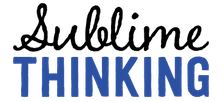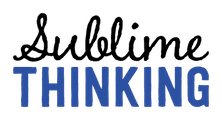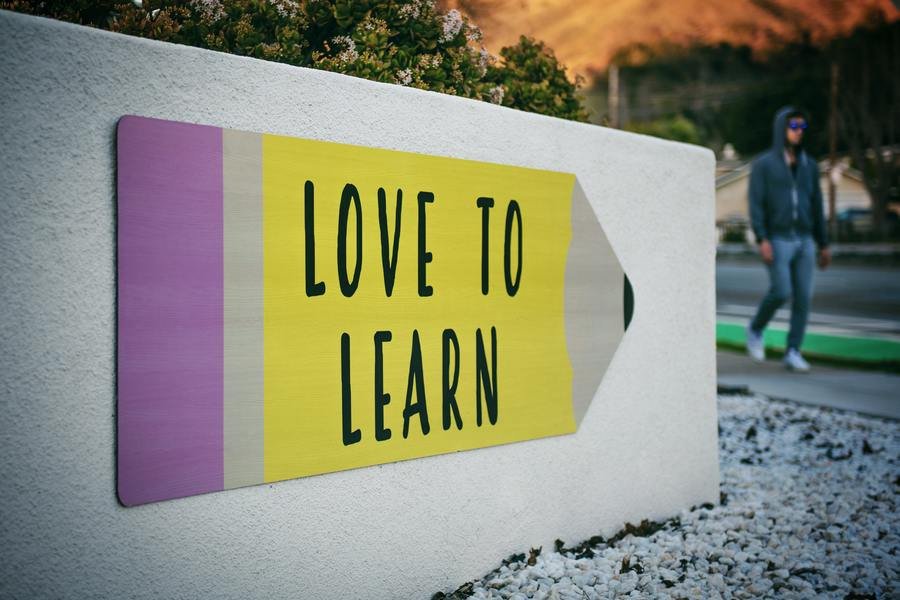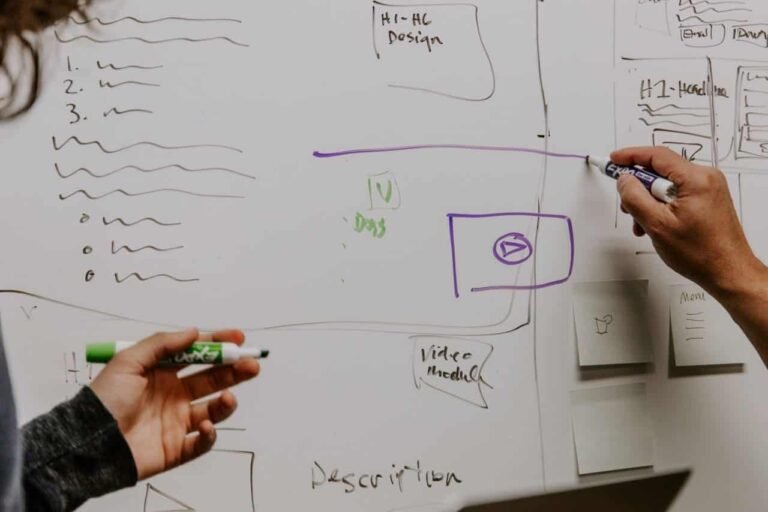Design learning or design your own learning? How do you meet your 21st century educational needs?
School, college, university. One of life’s little conveyor belts, where you go to study, do some exams and hopefully learn a few things along the way.
But once you move from the world of formal education into the workplace, the day to day routine of formal study begins to slip away into the world of work and developing a career.
Your chances of developing a career successfully not only depend on how well your formal studies prepared you for that career, but also on the quality of education that you receive throughout your career – and in what some call the new technological revolution, that has never been more important.
This article examines why continued education in the workplace is so important, the ways in which it can often be overlooked and how 21st century educational needs might be met.
Enter the workplace
Starting any new career or job can be an exciting time. Making a good first impression allows you to settle in comfortably and develop a relaxed way of working. However, starting on the wrong footing can make the beginning of a career incredibly stressful, create fear and affect your confidence.
Of course, applying a bit of common sense can go a long way to helping the first few weeks of any new job go smoothly, but there comes a point where you’re going to be expected to fly on your own for much of the working day when approaching, carrying out and completing tasks.
However, in contrast to formal education, where emphasis can sometimes be focused on learning how to answer exam questions, education in the workplace is going to be best focused on how to achieve better outcomes for customers and creating a learning community, whereby the way in which those outcomes are achieved and improved over time allows each individual to continue learning and improving as a person too.
Day one problems – Applying old knowledge to new tasks
Assuming that you have had little or no work experience in your chosen role, at first, many of your day-to-day tasks whilst related to your existing learning, might feel new to you.
To do those tasks, you might:
- ask for some initial help (in the absence of a willing mentor, assuming that you’re not too afraid to ask. However, it is not unusual for people not to ask for help, for fear of not wanting to disturb somebody more senior, or to give the impression that you’re not good enough for the role);
- try and read through some guidance notes/information (although if that is too extensive, that may appear too off-putting if your task has a deadline and you have other things on the desk);
- ask a junior colleague if they have done anything similar (which might provide you with a good starting point, but there is no guarantee of that, particularly if the context of what you are doing is different to what they did);
- do a web-search to see if you can conjure up any magic solution (you might be lucky, you might not); or
- make the best fist of it, based on what you learnt in your formal education (but the risk of that is you may end up trying to put a square peg into a round hole).
Ultimately, your default fallback position is always going to be just having a go , by applying what you know and your previous methods of working to the task in hand. Whilst that gives you a chance of doing a decent job, it by no means guarantees it.
Furthermore, if you apply that way of working to every new scenario, you may start to become more and more frustrated by the fruit of your efforts and wonder what you are doing wrong.
How can you do new tasks more effectively?
Getting the job done is all part and parcel of day to day life and things would soon come to a grinding halt if that didn’t happen. But to improve the world we live in, getting the job done is in reality only a part of the job. How you actually perform tasks also matters, because it can eat up unnecessary time, energy & resource and adversely affect your ability to develop as a person throughout your career and outcomes for others.
We saw earlier that whilst different approaches might be taken to new tasks, that can also result in a ‘scatter-gun’ approach, with the outcome of a task dependent upon for example, the quality of the help you receive or how helpful other methods of approach are. However, what if you learnt and developed an approach that worked for every new task?
Teaching ‘an approach to things’
The more often that a ‘scatter-gun’ approach is applied to completing new tasks, the more that approach becomes habitual. It also encourages the completion of new tasks by looking for an answer that already exists, rather than developing approaches to working through new tasks which are solutions based and result in more consistent outcomes for each category of task concerned, in turn providing learning along the way.
Take a piece of flat pack furniture for example. In your enthusiasm to get the job done, by only following part of the instructions and not knowing which piece is which before you start to assemble your furniture, your self-assembly is likely to end in tears – but there is a more methodical approach that can avoid that, if you stop to think first.
In a fast moving ‘outcomes’ world, thinking time is often overlooked. But if you compare the time wasted with scatter-gun approaches to that saved by being methodical, the latter soon becomes the far more attractive proposition. By teaching how to develop approaches to performing tasks, the benefits can be huge, because it drives home how important having ‘technique’ is. If you have ever wondered how many musicians can play any new piece first time at sight, it is because they have developed a technique which allows them to do that and they practice staying on top of their technique every day.
New task, new knowledge
Another dilemma that you can face, both when starting a career/role or during a career is how you learn and acquire new knowledge and then apply that knowledge to a new task.
Trying to make sense of an unfamiliar task where you have no existing knowledge related to that task can be fraught with difficulty. Formal education will provide the foundation of a certain level of information and knowledge, but to grow and develop a successful career, that needs to be nurtured and expanded.
Unless you are learning a new topic at work as part of a formal study regime, the chances are you won’t be taking any exams or testing your new knowledge at the end of the process. That could mean that when approaching a new task with new knowledge:
- Unless you have tested your own understanding of that knowledge, you may not understand that topic sufficiently enough for the task in hand; and
- If you adopt the scatter-gun approach to carrying out a task which that new knowledge relates to, the chances are you will find yourself in difficulties trying to complete that task.
Why teaching new knowledge in context matters
In busy workplaces and busy roles, it can be understandably difficult to find the time to learn new things effectively. However, we have already mentioned that a key part of getting the job done, is continuously learning and re-assessing the quality of what we know and how we get the job done. That creates an undesirable conflict.
Teaching and learning new topics outside of a formal education context can be hard. Unfortunately, many people who provide workplace training have limited or no experience of classroom teaching or teaching methods. Teaching in itself is a learning process, under which the teacher must keep fully on top of the subject matter and be able to communicate it to his/her students in a concise, comprehensible and usable way.
But for workplace education to have any real and lasting value it needs more. It requires the ability to not only teach the foundations of a new subject in a way that people understand, but also to teach it in context, so that people can take that knowledge and apply it effortlessly, both to familiar tasks and unfamiliar tasks.
What’s your study method?
In the world of the modern workplace, there is a huge array of online learning available these days. Some of it is of a very high standard. Some of it less so. You pay your money, you take your pick.
However, what sometimes gets lost in the mix and overlooked, is consideration of what any particular type of teaching or learning method is designed to achieve. Imparting and absorbing information in a concise way can of course help to develop a basic level of knowledge and understanding of a topic. But in order to create real value to the person learning, it needs to do so much more.
Unfortunately, where time appears to be scarce, focus can quickly shift from quality of learning, to getting the job done. That can limit the time available to get a real feel for actual knowledge gaps which may be of critical importance to getting the job done. There is no easy solution to that dilemma and ‘on the job experience’ may help to plug some gaps, but there is no certainty of that happening which may mean that there are gaps in learning which increase over time and are left unfilled.
Design learning
In choosing an education system that works for you in your post formal education years, how you think about and approach continuing education really matters.
As new technologies such as artificial intelligence, blockchain and smart contracts emerge and sustainability becomes a bigger buzz word by the day, how you learn about evolving issues that affect your area of work and society as a whole will be key to your success. Learning about such issues will become an increasingly important part of both formal and workplace education over the coming years. That knowledge in turn, will need to be applied to tasks, both old and new.
Designing a learning system that blends the old and new in a way that allows people to develop rewarding and worthwhile careers and which harnesses the most out of the opportunities that 21st century developments bring will be a huge task. Greater collaboration will be required between schools, universities, workplaces, suppliers and customers to develop educational systems that are fit for the rest of the 21st century. However, the full evolution of that is likely to take some time.
An alternative – Design your own learning
Keeping on top of your knowledge and learning is a lifelong process and sometimes the right sources of education and training may not always be available to you. Whilst learning from others is a helpful way of acquiring knowledge, if starting a new role or mid-career, you find yourself struggling, it may be because the knowledge you acquired, or the way in which you acquired it wasn’t suitable for starting or developing that career.
However, that doesn’t mean that all is lost – far from it – because ultimately learning is about developing awareness. Awareness of how you actually learn and how the different aspects of a subject can be applied and adapted to answer a particular question, perform a certain task, or to help others in need.
Understanding how to learn and the technique that sits alongside that allows learning to become an easier and more enjoyable process. And once you have developed a technique that is suitable to learning one subject, it can also be adapted to learn others. It also provides the freedom from which you can be truly creative and individual, providing you with a door to future personal growth and success.








